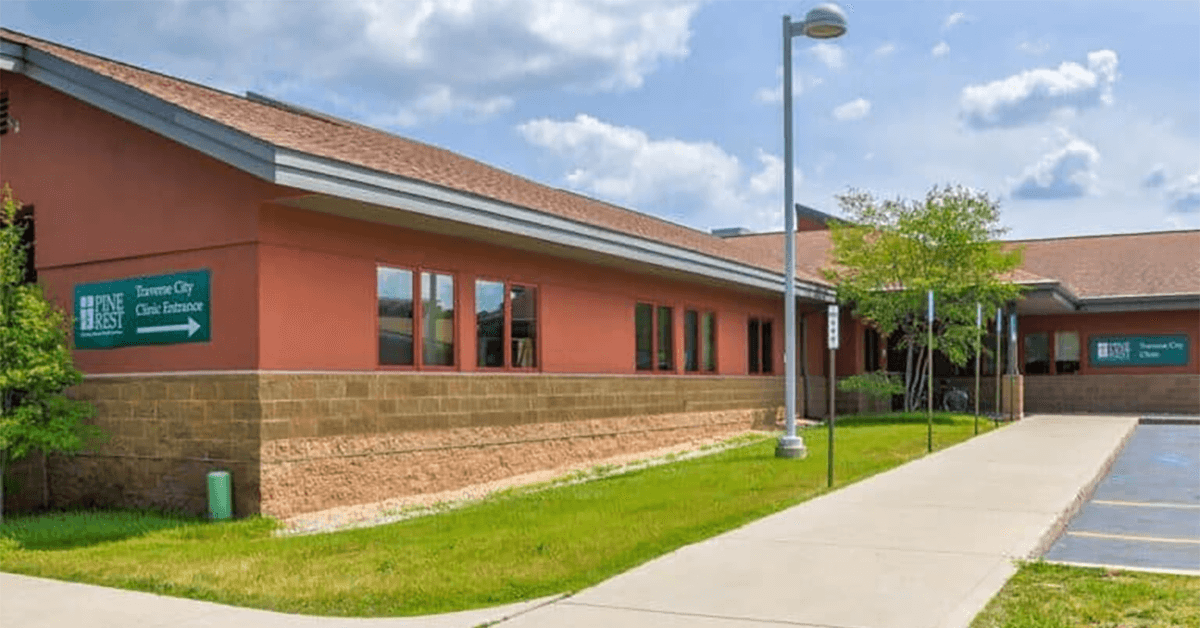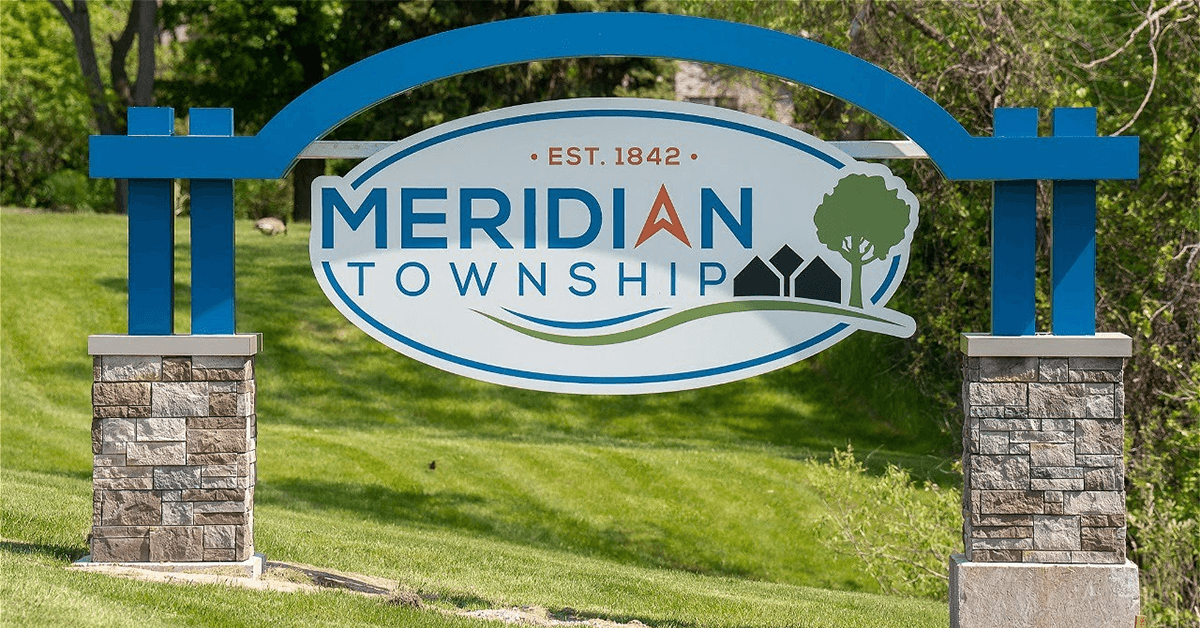Imlay City Faces Legal Challenge Over Medical Cannabis Ballot Initiative

Two years ago, the voters of Imlay City approved a ballot measure allowing the establishment of medical cannabis facilities within city limits. However, despite this decision, no such facilities have opened since. Now, the same group that supported the November 2022 proposal is pushing for a charter amendment on the city's November 2024 ballot to further "expand access" to medical cannabis in the city.
During a recent Imlay City Commission meeting, City Clerk Dawn Sawicki-Franz reported that the group, now operating under the name "Imlay City Yes 2024," submitted a petition on July 30th with signatures supporting the amendment. This was the final date for submitting ballot proposals for the city's upcoming November 5th general election. Upon reviewing the petition, Sawicki-Franz determined that the petition lacked the required number of valid signatures. Some signatures were disqualified due to being from residents of neighboring townships or due to illegibility. In total, 130 valid signatures were collected, but 137 were needed for the proposal to qualify for the ballot.
Following this, Sawicki-Franz consulted with City Attorney Robert Seibert, who confirmed that the petition did not meet the necessary criteria to move forward. In response, the group filed a motion in Lapeer County Circuit Court to challenge the city's decision and requested an additional ten days to gather the required signatures. The hearing is scheduled for Monday at 9 a.m. in front of Judge Mike Nolan.
The proposed charter amendment, if approved, would end the city's prohibition of cannabis establishments and allow for the operation of up to two medical cannabis facilities. However, City Manager Craig Horton raised concerns about the initiative, stating that the proposal's language is misleading. Horton pointed out that the city does not currently prohibit cannabis establishments; in fact, licenses were granted to two businesses following the 2022 measure, but these businesses chose not to open. He also criticized the proposed scoring system for license applications, which would heavily favor existing license holders, potentially blocking new applicants from securing a license.
Furthermore, city officials have expressed concerns that the amendment could override local zoning ordinances. Currently, medical cannabis businesses in Imlay City are restricted to operating in B-2 commercial districts. The proposed amendment could allow businesses to relocate their licenses and remove restrictions on operating near highway exits.
In the 2022 election, Imlay City voters narrowly passed the charter amendment to permit medical cannabis facilities by a vote of 644 to 599. This required the city to issue eight licenses across various categories, including provisioning centers, growers, and safety compliance facilities. Despite receiving six applications for provisioning centers and issuing two licenses, neither business has yet to open.
The city's medical cannabis department, established as a result of the 2022 amendment, has been operating at a loss. As an unfunded mandate under the city charter, the department relies on transfers from the general budget to maintain operations. The $100 fee for cannabis license applications has proven insufficient to cover the department's costs, according to Sawicki-Franz. She also noted that the deadline for submitting ballot proposal language to the county for the November election passed on August 13th.
New CRA Strategy Implements Surprise Inspections for Cannabis Licensees

The Michigan Cannabis Regulatory Agency (CRA) is shifting its approach to inspections of licensed cannabis businesses, moving away from scheduled semi-annual visits in favor of unannounced inspections. This change, set to take effect on October 1st, aims to enhance flexibility and efficiency in regulatory oversight. The CRA believes this approach will also lead to greater awareness and adherence to rules and regulations among employees in the industry.
The CRA announced the new inspection strategy during an educational session held via Zoom on August 22nd. Mandi Cooley and Kevin Cook, representatives from the CRA's enforcement division, emphasized the importance of flexibility in the implementation of these surprise inspections. Cooley noted that the process would be "open to corrective action plans," allowing business owners some autonomy in addressing any noncompliance issues. Cook acknowledged that the transition might not be "flawless" but assured that "accommodations" would be made, with the primary goal of ensuring continuous compliance among licensees.
CRA spokesperson David Harns echoed this sentiment, highlighting the expected benefits of the new plan. "This will help increase efficiency and flexibility with scheduling," Harns stated. "It will also necessitate that businesses educate their employees comprehensively—not just in their specific roles, but in compliance and understanding of the business requirements." The CRA's ultimate goal is to ensure that licensees remain compliant at all times and that employees fully grasp the regulations governing their work environment.
To prepare for the change, the CRA advises cannabis business owners to ensure that their on-site managers and staff are well-prepared for inspections. Employees should be familiar with how to access necessary documentation, such as employee background checks, standard operating procedures, logs, surveillance system records, certifications, and data from METRC, the state's seed-to-sale tracking system. The CRA also recommends that business owners provide their teams with inspection checklists, available on the CRA's official website.
In anticipation of the transition, the CRA is updating and streamlining its inspection checklists and developing new documents to be sent to businesses following inspections. Additionally, regulation officers will proactively contact businesses that are low-staffed or operate on a part-time basis to coordinate the timing of surprise inspections, aiming to avoid arriving at closed facilities. Cooley mentioned that the CRA is "working on the process" for situations where an inspector arrives to find a business closed.
Business owners are encouraged to verify the identity of regulation officers by requesting their CRA-issued photo IDs and to contact the Regulation Office's verification hotline with any concerns. The hotline number will be shared with licensees via an email blast.
Historically, the CRA's semi-annual inspections have shown a regulation compliance rate of approximately 93%, excluding minor deficiencies that are typically remedied quickly. According to Harns, common compliance issues include METRC tracking errors and surveillance equipment problems. Minor issues, such as labeling or standard operating procedure discrepancies, are usually resolved through re-inspection and rarely lead to further investigation. However, more serious noncompliance issues, such as significant METRC tracking failures or insufficient surveillance footage, could prompt an investigation, potentially leading to fines or even license revocation, depending on the findings.
Grand Traverse County Allocates Cannabis Tax Revenue to Address Child Psychiatric Shortage

At a marathon session on Wednesday, the Grand Traverse County Board of Commissioners voted to allocate $150,000 of cannabis tax revenue to Pine Rest Christian Mental Health Services of Traverse City. This decision, reached after over four hours of deliberation and impassioned public input, aims to address the critical shortage of child psychiatric services in Northwest Michigan.
The approved funding, which passed with a 6-3 vote, will be used to recruit, relocate, and onboard a new child psychiatrist for Pine Rest's Traverse City clinic. Local officials have described the need for such services in the region as "urgent and persistent."
Commissioners T.J. Andrews, Brian McAllister, and Scott Sieffert opposed the measure, not due to objections against mental health support but rather concerns over the process by which the funding was awarded. Andrews, speaking on behalf of the dissenters, emphasized the need for a more structured and transparent approach to such funding requests, noting, "This is not a sustainable approach to allocating funds. It has nothing to do with Pine Rest, but it's not our role to hire a psychiatrist."
Pine Rest initially requested $400,000 in May to bolster behavioral health services in the area. That request was denied, with commissioners asking for more detailed information on the necessity and intended use of the funds. On Wednesday, Pine Rest revised their request to $290,000, acknowledging the receipt of $110,000 from other sources since May. The board ultimately approved $150,000, funded by cannabis tax revenues instead of drawing from the county's general fund, a suggestion made by Board Chair Rob Hentschel.
Supporting the funding were Commissioners Darryl Nelson, Ashlea Walter, Lauren Flynn, Penny Morris, Brad Jewett, and Hentschel.
Local Clinic Versus Parent Organization
The relationship between the Traverse City Pine Rest clinic and its larger parent organization became a focal point during Wednesday's discussions. Pine Rest, a prominent nonprofit behavioral health provider, operates 21 outpatient clinics across Michigan, along with inpatient programs in the Grand Rapids area. However, the Traverse City clinic is a smaller entity that often spends more on patient services than it generates in revenue, influenced by fluctuating insurance reimbursements and its commitment to providing reduced-rate or free services to low-income families.
In a region chronically underserved by mental health professionals, the Traverse City Pine Rest clinic often acts as a vital resource for patients who do not qualify for services from Northern Lakes Community Mental Health, which primarily serves those without private insurance. The clinic's manager, Kristine Wilmoth, highlighted the clinic's crucial role in serving children and young adults. In 2023 alone, the clinic treated approximately 4,350 patients from Northern Michigan, including 850 under the age of 18.
Wilmoth stressed the growing need for youth mental health services, citing the severe consequences that can arise from inadequate care for children in crisis. "All too often, a 7-year-old who doesn't get mental health services when needed enters a lifelong downward trajectory that leads to substance abuse, unemployment, homelessness, and incarceration," she explained.
The addition of a new child psychiatrist is expected to enable the clinic to expand its services significantly, helping hundreds more young people in urgent need. Wilmoth also noted that this expansion would enhance collaboration with local doctors and hospitals.
Despite financial challenges, Pine Rest's Traverse City clinic is moving to a smaller, more cost-effective office. Wilmoth pointed to the clinic's new 10-year lease as evidence of its ongoing commitment to the community.
Commissioner Penny Morris, representing Long Lake Township, voiced her support for the funding, acknowledging the broader implications of failing to address the need for child psychiatric services. "While I'm concerned about opening the 'First National Bank of the BOC,' I know that these services are much needed, and the impact of not doing it is far-reaching," she said.
Commissioner Darryl Nelson, who represents District 6, initially expressed reservations about the county board's role in reviewing such funding requests but ultimately supported the use of cannabis tax money to jump-start the expansion of psychiatric care for children in the region.
Where the Money Comes From
The funding comes from Michigan's cannabis excise tax, a revenue stream established by the 2018 legalization of adult-use recreational cannabis. This law imposes a 10-percent excise tax on all cannabis sales, in addition to the state's standard 6 percent sales tax.
In 2023, legal cannabis sales in Michigan reached approximately $3 billion, a 70 percent increase from the previous year. This generated about $290 million in cannabis tax revenue for the state, far surpassing the $73 million collected from excise taxes on alcohol.
A significant portion of cannabis tax revenue is distributed to municipalities and counties that have licensed dispensaries, with $87 million allocated for this purpose in fiscal year 2023. Another $102 million is directed to the state's School Aid Fund and Michigan Transportation Fund.
Grand Traverse County is expected to receive about $886,000 from cannabis excise taxes for the 2023 fiscal year, while Traverse City will receive $709,000. Smaller amounts are slated for Green Lake Township and Fife Lake Township.
Meridian Township Board Unanimously Approves New Cannabis Prosecution Fund Ordinance

On Tuesday, the Meridian Township Board unanimously approved an ordinance amendment aimed at retaining funds from cannabis-related prosecutions within the township, rather than allowing them to go to Ingham County. The vote, which concluded with a 6-0 decision, marks a significant shift in how the township will handle financial penalties associated with cannabis offenses, especially those involving underage possession and distribution.
Meridian Township Police Chief Rick Grillo and Township Attorney Cullen Harkness first introduced the proposed ordinance amendment last month. The initiative was presented as a means for the township to better manage the resources generated from cannabis-related legal actions. Under the previous system, fines and penalties collected from these prosecutions were automatically directed to Ingham County, leaving the township without a share of these funds.
Trustee Marna Wilson provided insights into the township's existing cannabis-related prosecution powers, noting that Meridian Township has long had an ordinance in place to address violations, particularly those involving individuals under the age of 21. These cases typically involve possession or distribution, areas where the township has seen a need for continued enforcement.
"We have an ordinance that allows us to prosecute for marijuana issues and violations," Wilson stated during the meeting. "Primarily for possession in under 21-year-olds and distribution."
Before the newly passed amendment, any financial penalties resulting from these prosecutions were allocated to Ingham County. The ordinance change ensures that moving forward, such funds will remain within Meridian Township, providing a potential boost to local resources.
"What we're trying to do with this ordinance is, if there are monetary penalties associated with the conviction, the Township gets to keep that money instead of turning it over to the county," Wilson explained. This shift is seen as a way to enhance the township's financial capabilities, particularly in areas like law enforcement.
Wilson highlighted that the funds recouped through these prosecutions could be utilized in various ways to benefit the township. While they might contribute to the general fund, Wilson indicated a strong likelihood that the money would be allocated to bolster police support, addressing public safety needs directly within the community.
The ordinance is set to take effect on September 18th, marking a new chapter in how Meridian Township manages its cannabis-related legal processes and the accompanying financial implications. The amendment's passage could lead to more focused and well-funded law enforcement efforts within the township, particularly as it relates to cannabis regulation and youth-related offenses.
Meridian Township Clerk Deborah Guthrie was not present for the vote, but the board's unanimous decision underscores strong support for the measure among township leaders. As the new ordinance takes effect, it is expected to provide the township with greater control over the financial outcomes of cannabis-related legal actions, ensuring that funds generated from these prosecutions directly benefit the local community.
Michigan Appeals Court Reviews Controversial South Lyon Cannabis Proposal

The Michigan Court of Appeals is currently reviewing a cannabis-related ballot measure in South Lyon, following efforts by the city to prevent it from being presented to voters.
Previously, a lower court ruled in favor of the city, as confirmed by an attorney representing South Lyon in the case. Anne McClorey McLaughlin, who argued on behalf of the city, emphasized the potential impact of the ballot measure during a recent city council meeting.
"If this measure were allowed on the ballot and subsequently passed, it could significantly limit the city's ability to enforce regulatory measures," McLaughlin explained. "The measure is particularly favorable to the cannabis industry, especially those who already have a vested interest in local properties and have obtained approval from the state's cannabis regulatory agency."
Councilwoman Margaret Kurtzweil also expressed concerns about the measure, highlighting its potential to disrupt local zoning laws.
"This ballot proposal could drastically alter our zoning regulations in South Lyon," Kurtzweil stated. "It would eliminate restrictions on where cannabis dispensaries and retail locations could be established, taking away our authority to keep these businesses away from schools, churches, and other sensitive areas."
A decision from the Michigan Court of Appeals is anticipated in the coming weeks.
Bronson City Council Defers Cannabis Business Decision to Planning Commission

After reviewing maps outlining potential properties in the commercial and industrial districts that could qualify for recreational cannabis businesses, the Bronson City Council decided on Monday to delegate the issue to the Planning Commission for further consideration.
The topic of allowing recreational cannabis businesses in Bronson has been under discussion for over a year, but no formal decisions have been made by the City Council to date.
City Manager Brandon Mersman noted in his report that the City of Coldwater's GIS Department assisted Bronson by creating the maps used in the discussion. These maps illustrated which properties would be eligible for cannabis businesses at buffer zones of 200, 500, and 1,000 feet.
Council President Matt Watkins suggested that both the revenue potential from such establishments and the eligibility maps should be thoroughly reviewed by the Bronson Planning Commission.
Following Michigan voters' approval of recreational cannabis in November 2018, the Bronson City Council chose to opt out two months later. However, communities that opt out retain the option to opt in at any time.


 Helpful Links
Helpful Links